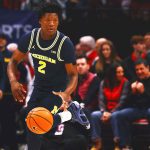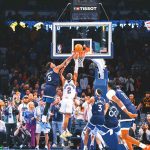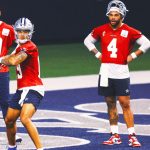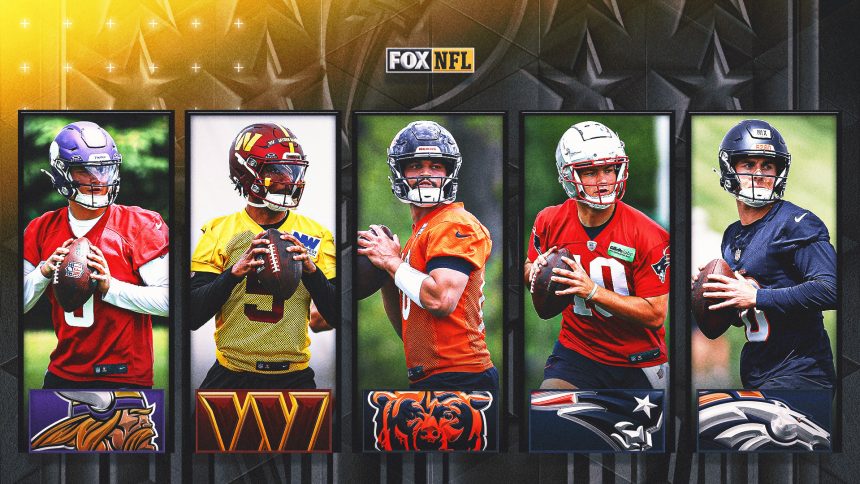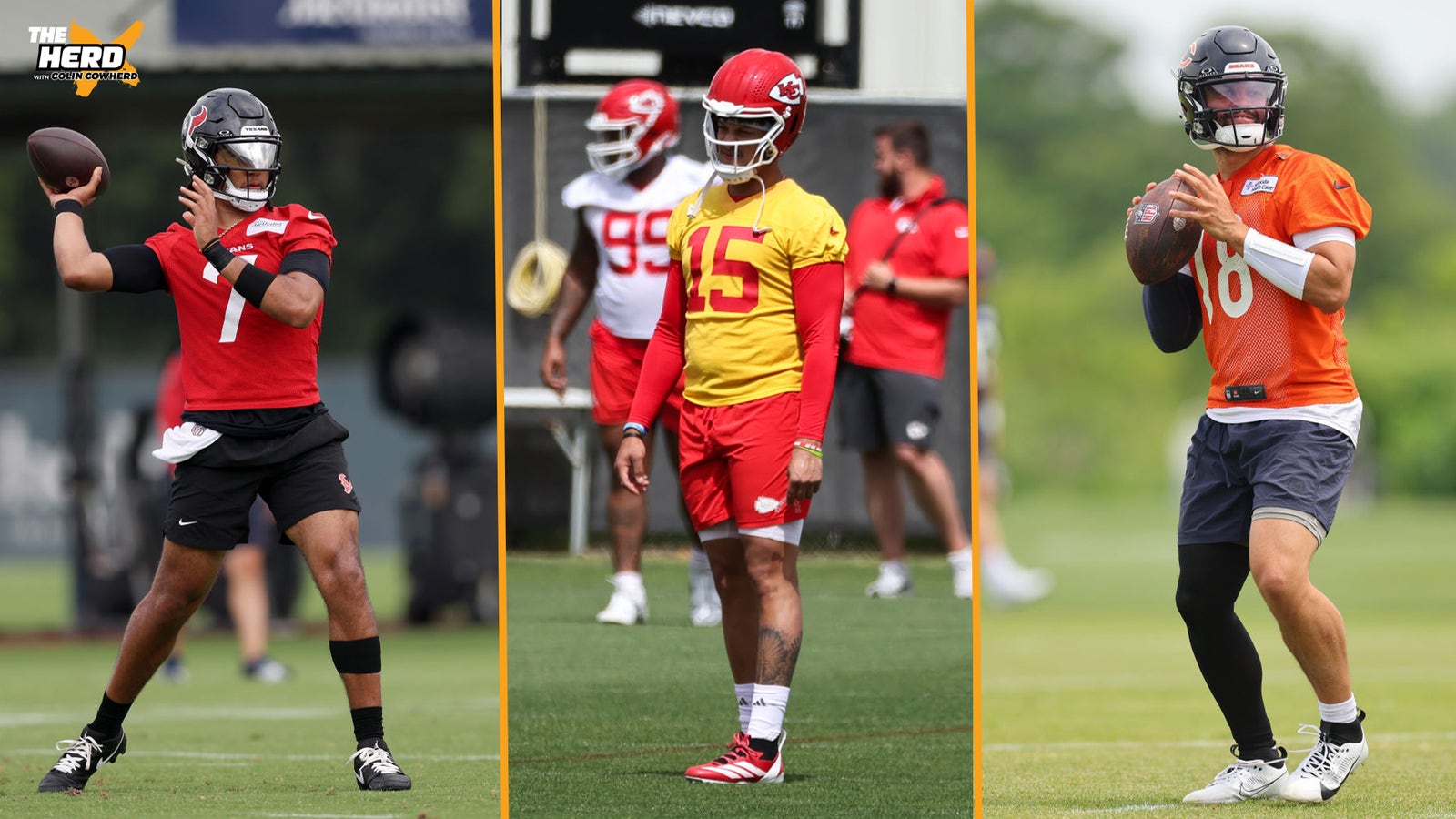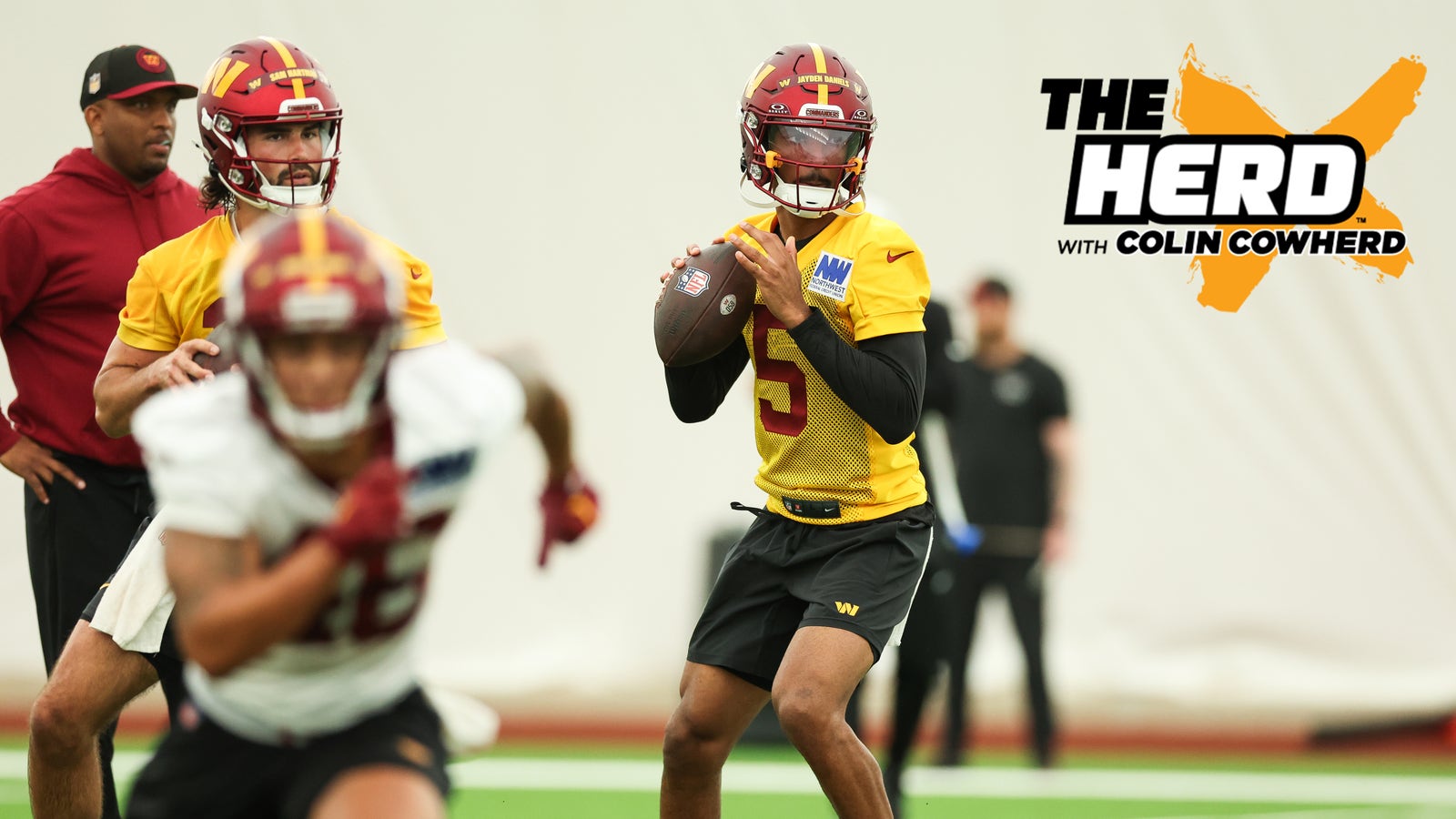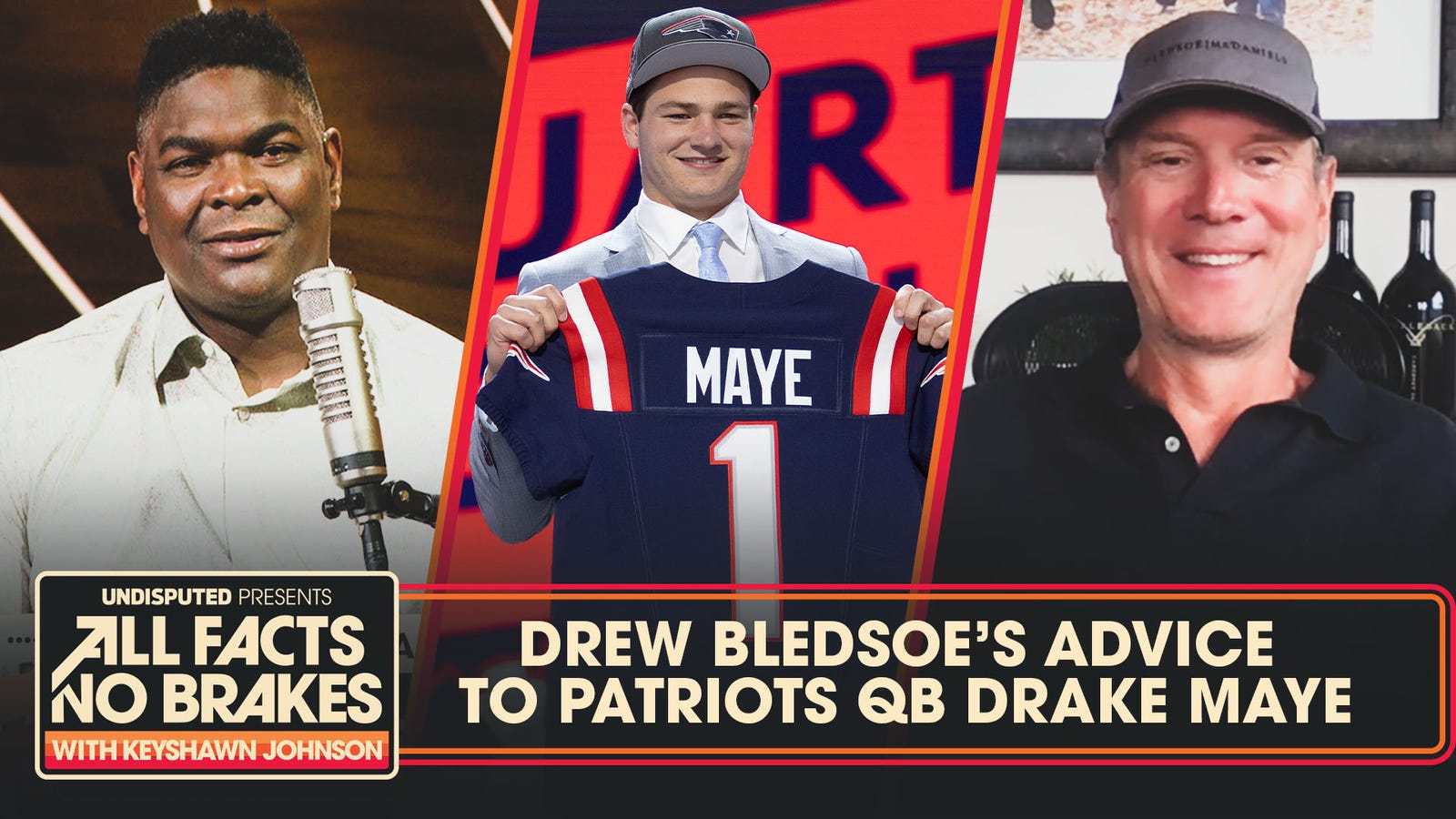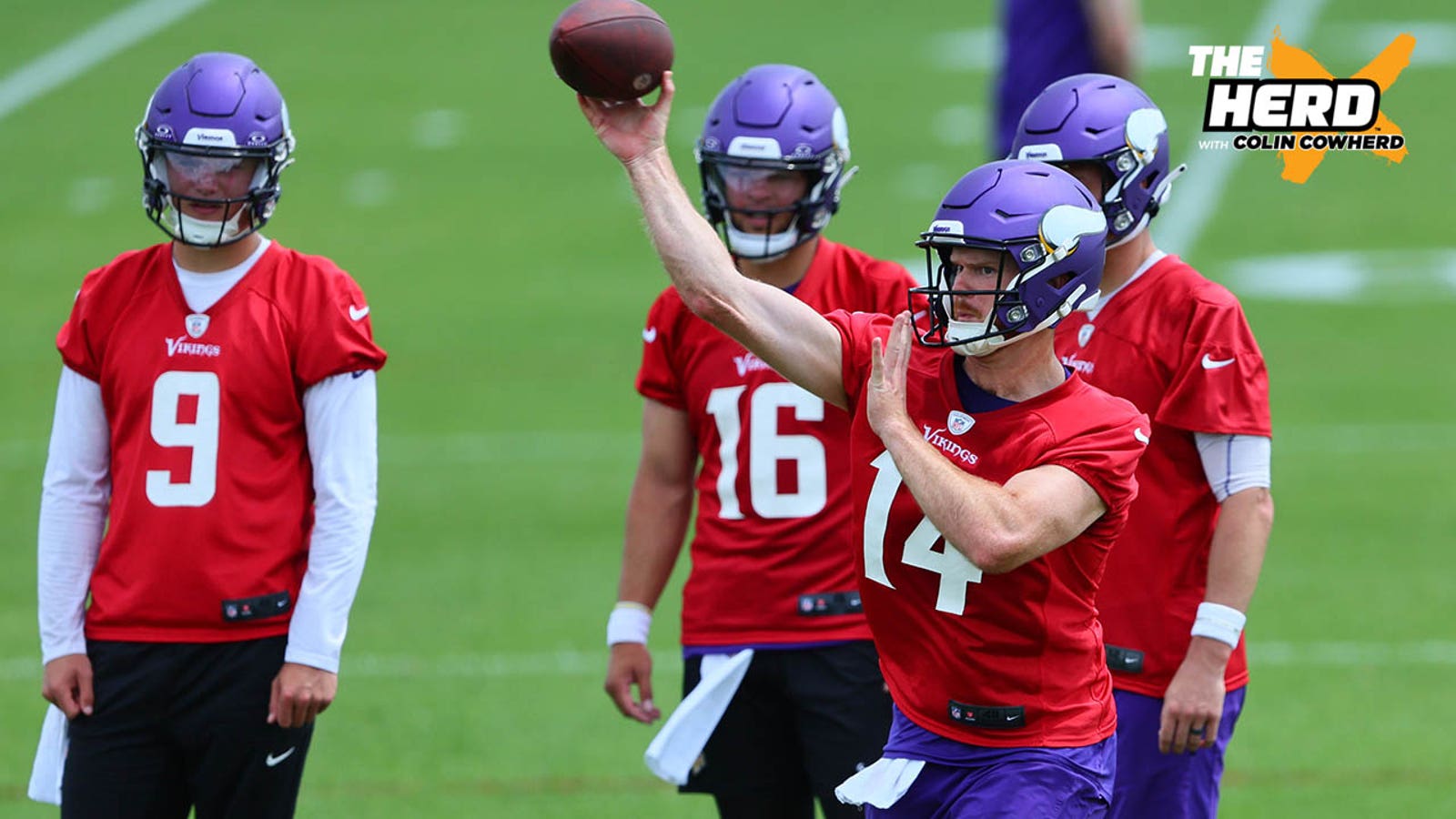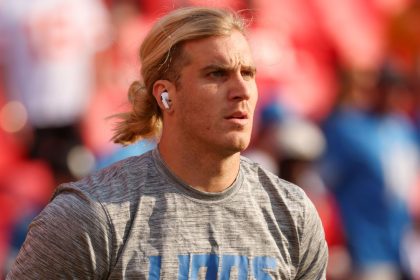The Houston Texans shocked the NFL world in 2023.
Led by No. 2 overall pick C.J. Stroud, who put together arguably the greatest rookie quarterback season in NFL history, Houston won 10 games — a seven-win improvement from the prior season — en route to a division title, and was one win away from the AFC Championship Game.
So which rookie quarterback’s team is poised to make a similar leap in 2024?
Like Stroud, each of the six quarterbacks taken in the first round of this year’s draft — Caleb Williams (Chicago Bears), Jayden Daniels (Washington Commanders), Drake Maye (New England Patriots), Michael Penix Jr. (Atlanta Falcons), Bo Nix (Denver Broncos) and J.J. McCarthy (Minnesota Vikings) — join teams that had a losing record the previous year.
ADVERTISEMENT
Apart from Penix, who’s expected to be on the bench as a rookie (barring an injury to Kirk Cousins), here’s a breakdown of the situations each of the first-round quarterbacks are entering — and the chances they have to lead a rise similar to Stroud:
Chicago Bears
Perhaps no quarterback ever taken first overall has been placed in a better situation than Williams.
The Bears have plenty of firepower, for one. Veteran wide receivers D.J. Moore and Keenan Allen both registered more than 1,200 receiving yards last season, while No. 9 overall pick Rome Odunze led the FBS with 1,640 receiving yards at Washington in 2023. Then you must factor in their impressive tight end room led by Cole Kmet, who last season tied for sixth at the position in receiving touchdowns, ninth in receptions and 10th in receiving yards. He’s backed up by Gerald Everett, who has started 46 NFL games.
Chicago also has continuity on the offensive line, returning all five starters. Its running back committee is led by D’Andre Swift, who was a 1,000-yard rusher for the Philadelphia Eagles last season.
Bears offensive coordinator Shane Waldron has a prior connection with Williams, having worked with him in 2017. Waldron also guided Geno Smith’s resurgence in Seattle, a testament to what he can do to maximize quarterback play.
When you add in an ascendant Chicago defense returning most of its starters from last season, this is a team capable of posting the franchise’s first winning season since 2018. It helps that the Bears have one of the easiest strengths of schedules.
But will they find a way to screw this up? The Bears have an awful track record of developing quarterbacks.
Justin Fields, the 11th pick in the 2021 draft, was shipped off to Pittsburgh in the spring after three up-and-down seasons. Before him, it was the Mitch Trubisky disappointment. Chicago hasn’t had a quarterback make more than one Pro Bowl since the 1950s.
Washington Commanders
Jayden Daniels is not as fortunate as Williams with his surrounding cast.
Terry McLaurin is the Commanders’ only proven receiving threat (he’s recorded four straight 1,000-yard seasons). Their No. 2 receiver last season, Curtis Samuel, signed with the Buffalo Bills in free agency. Former first-round pick Jahan Dotson will be expected to step up, but he didn’t hit 600 receiving yards in either of his first two NFL seasons. Third-round rookie Luke Mccaffrey, brother of San Francisco 49ers superstar Christian McCaffrey, could play a big role in Year 1.
The Commanders have invested on the interior offensive line this offseason — they signed former Chiefs guard Nick Allegretti to a three-year, $16 million deal and ex-Cowboys center Tyler Biadasz to a three-year, $29.25 million contract — which should help a run-game committee led by Austin Ekeler. But it’s concerning that there’s uncertainty around Daniels’ blindside protection. Washington’s left tackle job is a three-way competition between third-round rookie Brandon Coleman, and veterans Cornelius Lucas and Trent Scott. The Commanders allowed 65 sacks last season, tied for second-worst in the NFL.
The Commanders’ defense should be in good hands with new coach Dan Quinn, who has previous head coaching experience and is coming off a successful run as the Cowboys defensive coordinator. But it’s harder to say what to expect from the offense, which will be run by coordinator Kliff Kingsbury. The last time he was a playcaller in the NFL, as the Cardinals coach from 2019-22, his teams were defined by underachievement.
New England Patriots
Drake Maye isn’t currently the starter — he ended the spring taking reps behind Jacoby Brissett — but when he becomes QB1, he has a receiving core on paper that looks even worse than what Daniels has with the Commanders.
New England didn’t have a player reach 600 receiving yards last season. The incompetence of New England’s passing attack played into the meager receiving numbers, but there will be big expectations for rookies Ja’Lynn Polk (second round) and Javon Barker (fourth round). The Patriots pursued Calvin Ridley in the spring but lost in the free agency bidding war with the Tennessee Titans.
There’s more uncertainty upfront for the Patriots. It’s unclear who will start outside of center David Andrews and free-agent acquisition Chukwuma Okorafor, who will be a left tackle after playing the right side with the Steelers. Starting left guard Cole Strange could be out until midseason with a knee injury suffered last season.
Having an experienced offensive coordinator in Alex Van Pelt and two proven running backs helps (Rhamondre Stevenson, Antonio Gibson), but overall the Patriots have an underwhelming supporting cast for a first-round quarterback.
Minnesota Vikings
Similar to Williams, J.J. McCarthy is walking into a quarterback-friendly skill group.
The Vikings have arguably the NFL’s top receiver in Justin Jefferson, a strong No. 2 option in second-year receiver Jordan Addison, one of the league’s top tight ends in T.J. Hockenson and a good running back in Aaron Jones.
Minnesota also returns four offensive-line starters and has an offensive-minded, play-calling head coach in Kevin O’Connell.
McCarthy might have to wait a bit to be QB1, but a rookie quarterback couldn’t draw up a much better situation.
Denver Broncos
Like a number of other rookie quarterbacks, Bo Nix’s receiving cast is nothing to write home about.
The Broncos’ leading returning receiver is Courtland Sutton, who had 772 yards in 16 games last season. Josh Reynolds, who was a 600-yard receiver for the Detroit Lions in 2023, essentially replaces Jerry Jeudy, who was traded to the Cleveland Browns. Further down the depth chart is Tim Patrick, who hasn’t appeared in a game since 2021, and fourth-round rookie Troy Franklin, Nix’s college teammate at Oregon.
Denver returns four starters on the offensive line, but it will be breaking in a new center after losing Lloyd Cushenberry in free agency.
So … which rookie quarterback team is best positioned for massive success?
Easy: the Bears.
Chicago and Minnesota are in a class of their own in terms of surrounding casts for their rookie quarterbacks. But the former edges the latter in overall talent. Justin Jefferson is great, but the Bears have a bit more depth at receiver, plus five returning starters on the offensive line, compared to the Vikings’ four.
Yes, the Bears’ terrible track record with quarterbacks is well-documented. The decision to retain Matt Eberflus, who has a 10-24 record in two seasons, could come back to bite Chicago, too. But the team has a new offensive staff to shape Williams, who is a superior quarterback talent to Fields (or anyone else Chicago has had over the years). The franchise’s significant investment this offseason on both sides of the ball offers the potential for brighter days ahead in Chicago.
Ben Arthur is the AFC South reporter for FOX Sports. He previously worked for The Tennessean/USA TODAY Network, where he was the Titans beat writer for a year and a half. He covered the Seattle Seahawks for SeattlePI.com for three seasons (2018-20) prior to moving to Tennessee. You can follow Ben on Twitter at @benyarthur.
recommended
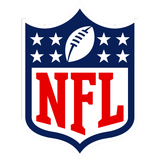
Get more from National Football League Follow your favorites to get information about games, news and more

